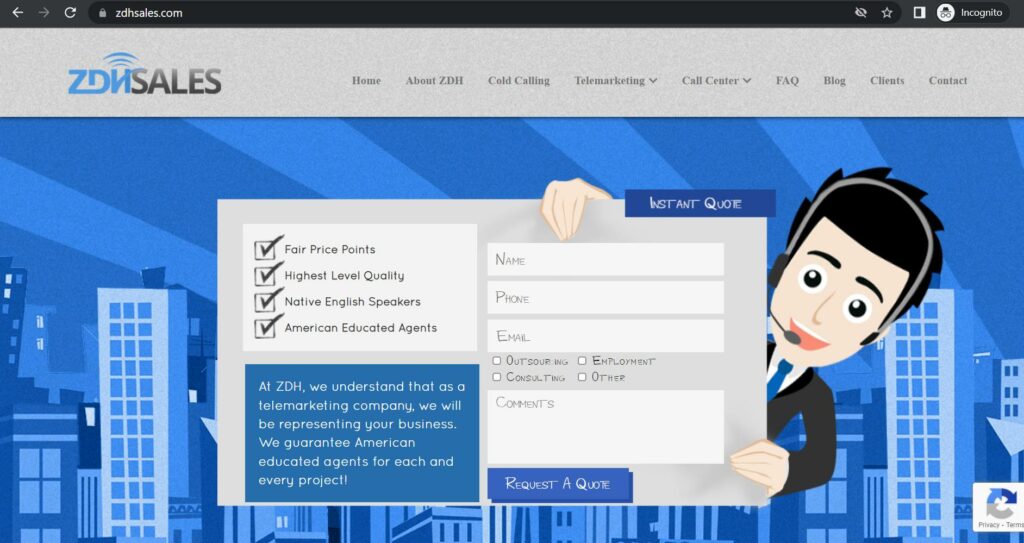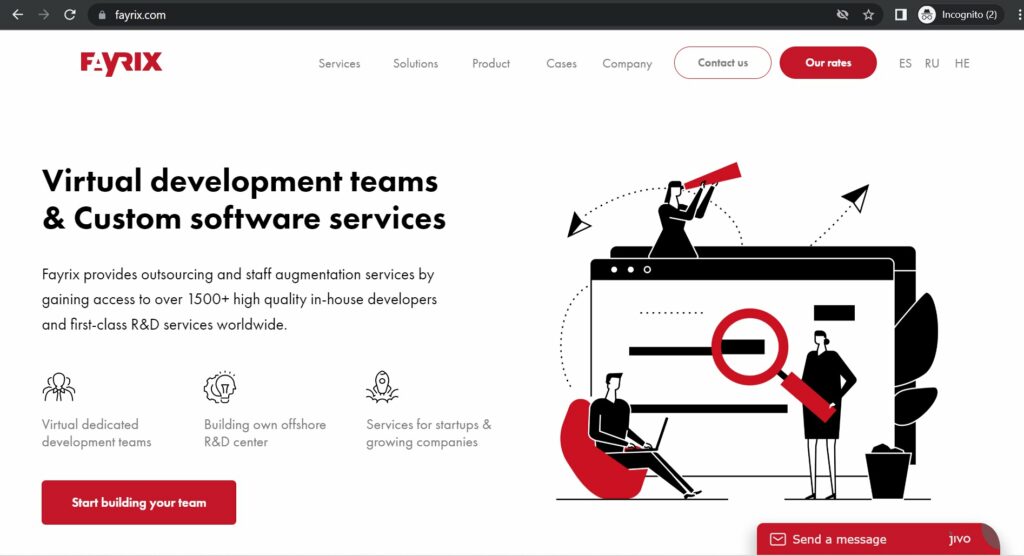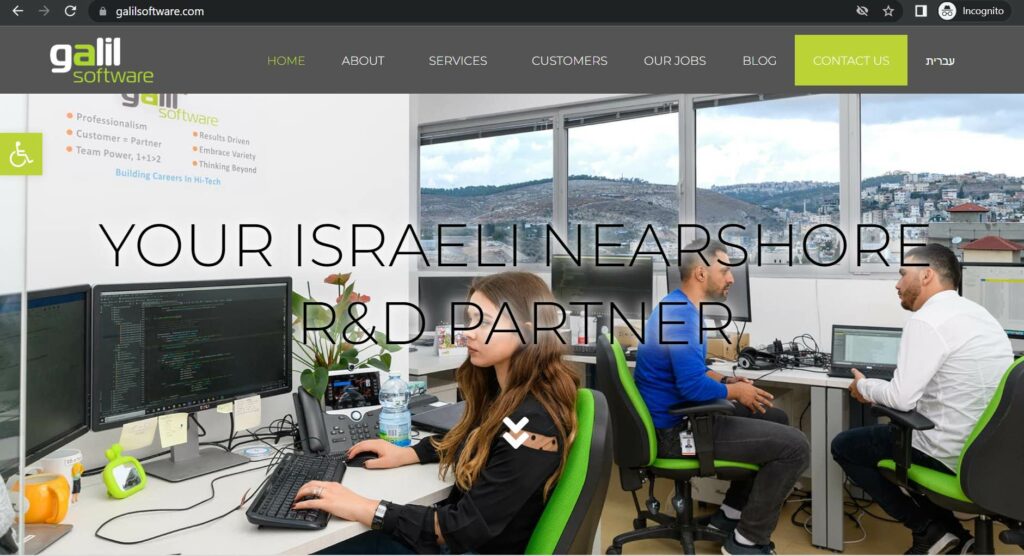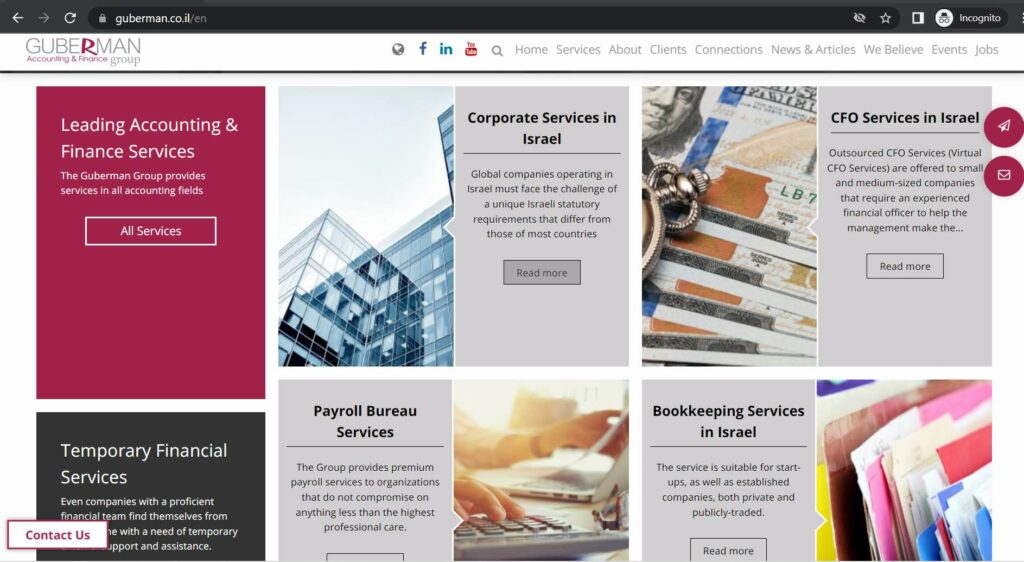Israel is a popular country among companies looking to outsource their business tasks like bookkeeping and sales management. The country’s skillful talent pool, booming economy, and low-cost services are a few factors attracting foreign companies.
Thinking about outsourcing to Israel?
You need to analyze some major factors influencing the country’s outsourcing industry to ensure maximum business profitability.
In this article, we’ll explore the six advantages and three disadvantages of outsourcing to Israel. We’ll also look into the two major outsourcing industries and laws associated with outsourcing in the country.
Finally, we’ll highlight six popular Israeli outsourcing companies that you can partner with.
Table of Contents
- 6 key advantages of outsourcing to Israel
- 3 main disadvantages of outsourcing to Israel
- 2 major outsourcing industries in Israel
- 4 laws you need to know before outsourcing to Israel
- 6 popular outsourcing companies in Israel
Let’s get started.
6 key advantages of outsourcing to Israel
Here are the six advantages of outsourcing your business functions to Israel:
1. Highly skilled talent
According to the Global Skills Report 2021, Israel ranks 38th globally based on expertise in technology, data science, and business. It also reports that the Israeli population is adept in computer programming, databases, security engineering, and theoretical computer science.
Additionally, Israel has skilled software developers and was ranked 35th in the HackerRank’s Programming Olympics conducted in 2019. Here, the country outranked developed countries like Norway and New Zealand.
Popular institutions like Tel Aviv University, the Jerusalem School of Business Administration, etc., impart premium education to aspiring Israeli businessmen and help them become world-renowned leaders.
For example, Israeli CEOs Hamutal Yitzhak of Else Nutrition and Shahar Fogel of Rookout received World Biz Magazine’s “Top 100 Innovation CEO” awards in 2021.
Another successful example of an Israeli CEO is Gai Anbar, CEO of Comply Ltd, an IT services company.
2. Rapidly growing economy
Israel is a quickly growing economy due to its high rate of consumer spending and profitable export business.
According to the international news source, Reuters, the country showed a GDP growth of 8.1% last year. The services and manufacturing sectors accounted for 80% and 14% of the country’s GDP, respectively. This is an astounding growth, especially since the country saw a contraction of 2.2% in 2020.
Most importantly, Israel has a higher GDP than other popular outsourcing countries. Its main competitors Ukraine (a country in Eastern Europe) and Poland (a country in Central Europe), have a GDP growth of 6.1% and 5.7%, respectively.
3. Round-the-clock services
Since Israel is located in the GMT+2 time zone, it’s seven hours ahead of New York (located in North America) and two hours ahead of the United Kingdom.
As a result, your Israeli outsourcing company doesn’t have the same working hours as your in-house team. Your outsourcing team can attend to urgent issues and reply to customer queries when your in-house team is unavailable.
This can be beneficial in the hospitality and customer service industries, where businesses are required to function 24/7.
4. Favorable government policies
The Israeli government initiated the Technology Incubator Program, in which it established over 25 technological incubators throughout the country. These incubators offer companies funding of up to 85% during the early stages of the project.
In addition, the Israel Innovation Authority (IIA) offers initiatives worth 400 million dollars to help companies establish themselves. This can provide foreign companies financial security while they set up their business in Israel.
One of the employment grant programs offers a 4-year grant scheme, paying a part of the payroll of every new employee.
Most importantly, foreign companies have a reduced tax rate and receive investment grants as per the Investment Law.
5. Abundance of start-ups
Israel is known as ‘The Start-up Nation’ as it houses over 6000 startups. Like the American Silicon Valley, Israel has a start-up-intensive region known as Silicon Wadi.
Cities like Tel Aviv, Jerusalem, and Hod Hasharon, are also home to top-notch Israeli technology companies.
These Israeli startups raised $25.6 billion in 2021. Startups specializing in cybersecurity and fintech are leading contributors to the money raised. Foreign companies can approach any such Israeli startup for data security, financial services, and more for their business at lower costs.
According to LinkedIn, the top growing startups in Israel are Hunters (a computer and network security company) and Elementor (a WordPress-based website development tool).
6. Less expensive than western countries
Israeli products and services can be acquired at much lower costs than other western countries like Switzerland. This is due to lower office rent, electricity bills, average salary, etc., compared to the developed economies.
For example, the average base salary of an Israeli data engineer according to payscale.com is USD 80,706 (ILS 263,824), and that of their American counterpart is USD 116,053 based on data from indeed.com.
Similarly, the cost of living in Switzerland is way higher than in Israel. Rent is 42.05%, and local purchasing power is 62% higher in Switzerland than in Israel.
This is why running a business in Israel is less expensive than in western countries.
Now, let’s go through the drawbacks of outsourcing to Israel.
3 main disadvantages of outsourcing to Israel
Here are the three prominent disadvantages of outsourcing to Israel:
1. Shortage of talent
As a startup nation, Israel faces an acute shortage of skilled employees.
According to the State of Software Development 2021 report, staffing was the main challenge faced by the software development sector.
As per the OECD Skill Strategy 2019, this skill shortage is due to fewer skilled youth and a lack of talent improvement.
However, you can hire budding Israeli software developers and programmers and train them to acquire the necessary skills. This will simplify the hiring process and mold these employees so that they fit well into the company.
2. Collaboration challenges
Israeli tech firms and foreign teams may face challenges in collaborating due to the time zone differences that lead to different working hours.
To tackle this drawback, you need to devise a project management plan. You can use virtual meeting platforms to communicate changes in deliverables, queries, etc., with your offshore or remote team in Israel.
For example, you can block an hour weekly for a meeting to let your in-house and outsourced team discuss project progress and successfully execute remote work management.
3. High average salaries
Although Israel is less expensive than western countries like Switzerland, it’s costlier than developing countries like Ukraine.
As a result, a company outsourcing to Israel may have to spend more, when compared to Ukraine or India, for the same services.
For example, salaryexpert.com shows that Israeli software engineers earn a little bit more (USD 74,880) than Chinese engineers (USD 52,317).
Similarly, the average annual salary of Ukrainian developers is almost one-third (USD 23,821) of that of Israeli developers (USD 71,900).
Now that you know the pros and cons of outsourcing to Israel, let’s explore the two popular outsourcing industries preferred by foreign companies.
2 major outsourcing industries in Israel
Here are the two major outsourcing industries in Israel:
1. Research and development (R&D)
Israel harbors the R&D of over 530 MNCs, including Samsung, Apple, and IBM. These companies set up their research and development centers in Israel due to the presence of high-quality Israeli engineers.
Further, many other companies are expanding their R&D operations in Israel. For example, the hardware and software networking giant Cisco has set up a new chip development center in Israel in addition to its already existing R&D centers.
According to the 2021 Statista report, Israel ranks 2nd in the percentage of GDP (4.04%) invested in the research and development sector worldwide. This is high when compared to the 2.8% that the United States invests in the same industry.
2. Information Technology (IT)
The IT industry in Israel has expanded by 400% in the last decade. In 2020, the country exported USD 767.1 million and imported USD 224.1 million worth of Information and Communication Technology (ICT) services.
Apart from native IT firms, MNCs like Intel Corp. and Microsoft Corp. have also established outsourcing hubs in Israel.
Additionally, over 100 Israeli IT companies are adept in cloud computing and delivering business and consumer services via the internet. These companies have set up Israeli branches in different cities to leverage different technologies and offer quality outsourcing services.
Check out our complete guide on IT outsourcing.
Now, let’s look into the laws you need to know before outsourcing to the country.
4 laws you need to know before outsourcing to Israel
Lack of awareness of legal procedures and laws of outsourcing in Israel can lead to mistakes and financial loss.
While companies like Outsourcing to Israel (OTI) can help you hire top native English-speaking talent, you need to understand the laws and regulations too.
Here are a few laws an international company should keep in mind before outsourcing to Israel:
1. Laws against discrimination
Israel’s Employment Law of 1988 prohibits employers from discriminating against workers and job applicants on the basis of:
- Political party.
- Age.
- Religion.
- Race.
- Nationality and more.
For example, you shouldn’t advertise to hire a ‘young developer’. This can be considered discrimination against age.
2. Minimum wage
Israel requires all companies to pay their employees a minimum wage of USD 650, according to the Minimum Wage Law. This law is applicable to all employees who are 18 years or above of age. However, employees with disabilities and those younger than 18 years have a lower minimum wage.
3. Working hours
According to the Hours of Work and Rest Law (1951), the maximum weekly work hours is 45 and the maximum daily working hours is eight.
But the Ministry of Labor has extended the maximum daily work hours (to nine or ten hours) and reduced the number of workdays in a week from six to five. It also requires the employer to pay employees 125% of the hourly wage for the first two hours of overtime and 150% for longer.
4. Different types of leaves
Your outsourcing employees are entitled to avail of the following annual leaves as per the Annual Leave Law, 1951:
- Paid leave of 14 days during the initial four years.
- Paid leave of 16 days in the fifth year.
- Paid leave of 18 days in the sixth year.
- Paid leave of 21 days in the seventh year.
- An additional day per year to a maximum of 28 days for employees working for more than seven years.
Additionally, as per the Sick Pay Law, employees also get one and a half-sick days every month of employment (up to a maximum of 90 days).
Now let’s go through the popular outsourcing companies in Israel.
6 popular outsourcing companies in Israel
Here are the six leading outsourcing companies in Israel:
1. Innovecs

Innovecs is an Israeli software development company with headquarters in Tel Aviv. It has over nine offices across the globe, with branches in countries like the USA, UK, and Ukraine.
Key services
- Deploys the Israeli developer to build software from scratch.
- Upgrades software by enabling integrations.
- Offers professional consultation to help companies make software-related decisions.
- Offers mobile app development services for iOS, Android, and hybrid mobile devices.
2. ZDH Sales

ZDH Sales is a B2B telemarketing company with its headquarters in Bet Shemesh and employs native English speakers. The company primarily aims to serve American clients with English speaking agents who are familiar with American products and services.
Key services
- Calls potential customers to turn them into leads.
- Generates customer interest in a product or service to sell.
- Offers outsourcing services in several languages – English, Hebrew, Russian, French, and Spanish.
- Uses innovative technologies like appointment setter, telemarketer, etc.
3. Aidey

Aidey is a customer support service company with its headquarters in Tel Aviv. It specializes in SaaS, back office, outbound services, e-commerce, hospitality, and IT support.
Key services
- Offers customized services depending on your service volumes, protocols, and complexity.
- Has a package for start-ups, including system design, management, and more, with no setup cost.
- Offers omnichannel and multilingual support to customers.
- Processes and migrates large volumes of data quickly.
4. Fayrix

Fayrix, headquartered in Ra’anana, is a customized software development company offering professional BI (Business Intelligence) and big data services. The company sets practical business deadlines, offers full transparency, and maximizes productivity for your customers.
Key services
- Offers a virtual dedicated software development team.
- Sets up your R&D center and manages all operational and administrative tasks.
- Uses AI, machine learning, predictive analysis, and other latest technologies to develop software.
- Offers custom e-learning software development services.
5. Galil Software

Galil software is an Israeli R&D outsourcing company offering its expertise in QA automation, R&D augmentation, and legacy software maintenance. It’s headquartered in the Nazareth Industrial Park and employs top Israeli developers to offer premium services.
Key services
- Provides a dedicated team for QA and other core functions.
- Develops QA automation software, including infrastructure setup and framework development.
- Develops Android and iOS (native) apps.
- Automates cloud operational environments like Dev or Test or Pre prod in a repeatable manner.
6. Guberman

Guberman is an outsourcing HR services company with headquarters in Tel Aviv. It offers professional staffing and hiring services and specializes in helping firms of all sizes, from start-ups to international companies.
Key services
- Offers professional guidance regarding human resource management and optimization.
- Develops training programs in different fields, including executive development and customer handling.
- Handles employment contracts and formulates procedures and agreements.
- Manages leasing contracts, performance-based compensation schemes, pension plans, and more.
Besides these Israeli outsourcing companies, Asal Technologies (owned by CEO Murad Tahboub) in the West Bank city is also known for its top-notch BPO services.
Wrapping up
Israel is a great option for companies looking to outsource their business operations due to low service costs and favorable government policies.
However, the lack of quality communication and an employable population can pose challenges in terms of successfully outsourcing to Israel.
Go through the laws mentioned in this article and refer to them before hiring an outsourcing team from Israel. Also, the list of popular outsourcing companies can give you an idea of the services an Israeli company would offer.

Andy is a technology & marketing leader who has delivered award-winning and world-first experiences.


